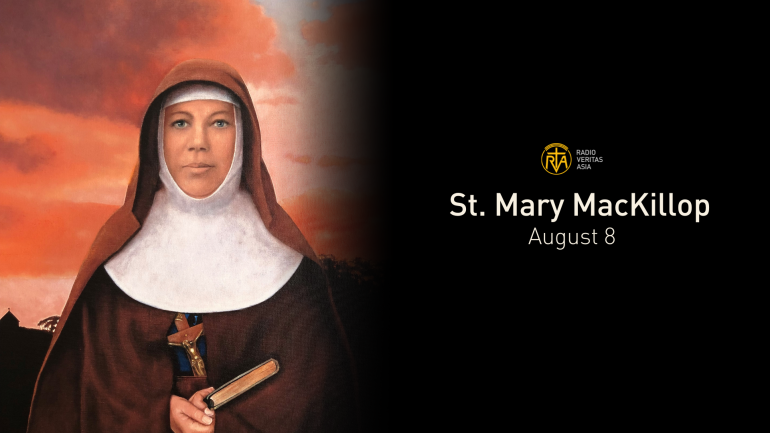Mary MacKillop: Australia's First Saint, and Her Enduring Legacy

Saint Mary MacKillop, whose feast we commemorate today, inspires us to struggle for justice and equality. Her compassion, resiliency, and faith-driven action lessons are important.
Located at the center of Australia's historical narrative, there shines a beacon of light and hope: Saint Mary MacKillop.
Mary Helen MacKillop, who was born on January 15, 1842, in Fitzroy, Melbourne, traversed the realms of faith, education, and social justice throughout her life, leaving a lasting impression on both the country and the world. Today, her legacy continues to inspire, uplift, and guide countless individuals who seek to make a positive impact in their communities.
Early Mary MacKillop's life was characterized by compassion, faith, and service. Her parents instilled in her a deep spirituality and a remarkable sensitivity to the needs of the less fortunate, as she was raised in a devout Catholic family. Her mother's charitable activities and her father's hardships paved the way for a life devoted to assisting others.
Mary MacKillop's intense love of learning spurred her into the position of a governess while also pursuing her intellectual endeavors. After this encounter sparked an unquenchable passion inside her, she and Father Julian Tenison Woods founded the Sisters of Saint Joseph of the Sacred Heart in 1866. Their goal was to provide education to the underprivileged, particularly in Australia's outlying regions.
The educational philosophy of Mary MacKillop was inclusive and transformative. She believed that every child should have access to a high-quality education, regardless of their circumstances. Her educational institutions went beyond the confines of traditional higher education and became havens of empowerment, equipping students with the skills they needed to escape the shackles of disadvantage and poverty.
Saint Mary MacKillop's journey was not without challenges. The establishment of the Sisters of Saint Joseph was met with opposition from some Church members as well as financial difficulties. She also had to endure a brief period of excommunication. Yet her faith was unshaken, and she handled adversity with grace and forgiveness.
Her resilience and determination were exemplified not only by overcoming challenges but also by using them as stepping stones toward her greater mission. In the end, her excommunication was lifted, and her steadfast dedication to her cause only grew stronger, solidifying her reputation as a fearless and compassionate advocate.
Beyond her contributions to education, Saint Mary MacKillop's legacy was entwined with her unwavering dedication to social justice. In a time of racial injustice, she emerged as an unwavering advocate for marginalized groups like indigenous communities and women. Her actions spoke louder than words, as she worked tirelessly to alleviate the suffering of those on the fringes of society.
Her philosophy of social justice was founded on the idea that human interaction should be based on love, compassion, and empathy. Her unwavering commitment to enhancing the lives of others serves as a timeless example of how people can bring about dramatic change through their deeds.
Mary MacKillop was canonized in 2010, making her the first saint of Australia. This significant occurrence served as evidence of her continuing influence and the immeasurable breadth of her legacy. Her life story connects people from a variety of backgrounds and worldviews, transcending religious boundaries. Echoing the values she upheld, her emphasis on empowerment through education and social justice is still relevant today as it was throughout her lifetime.
The story of Saint Mary MacKillop challenges us to consider how we may help create a society that is more just and equal. Her experiences provide priceless lessons in compassion, resiliency, and the power of faith-driven action.
Her legacy serves as a reminder that, even in a complex society, one person's unwavering dedication can leave a lasting impression and pave the way for subsequent generations.
Radio Veritas Asia (RVA), a media platform of the Catholic Church, aims to share Christ. RVA started in 1969 as a continental Catholic radio station to serve Asian countries in their respective local language, thus earning the tag “the Voice of Asian Christianity.” Responding to the emerging context, RVA embraced media platforms to connect with the global Asian audience via its 21 language websites and various social media platforms.












